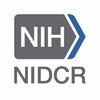DHEA Treatment for Sjogren's Syndrome
Primary Purpose
Lacrimal Apparatus Disease, Salivary Gland Disease, Sjogren's Syndrome
Status
Completed
Phase
Phase 2
Locations
United States
Study Type
Interventional
Intervention
Dehydroepiandrosterone
Sponsored by

About this trial
This is an interventional treatment trial for Lacrimal Apparatus Disease focused on measuring Xerostomia, Autoimmunity, Salivary Glands, Androgen Therapy, Lacrimal Function, DHEA, Sjogren's Syndrome, Dehydroepiandrosterone
Eligibility Criteria
Females with a diagnosis of Primary Sjogren's Syndrome. No history of breast cancer.
Sites / Locations
- National Institute of Dental And Craniofacial Research (NIDCR)
Outcomes
Primary Outcome Measures
Secondary Outcome Measures
Full Information
NCT ID
NCT00001598
First Posted
November 3, 1999
Last Updated
March 3, 2008
Sponsor
National Institute of Dental and Craniofacial Research (NIDCR)
1. Study Identification
Unique Protocol Identification Number
NCT00001598
Brief Title
DHEA Treatment for Sjogren's Syndrome
Official Title
Dehydroepiandrosterone (DHEA) Treatment for Sjogren's Syndrome
Study Type
Interventional
2. Study Status
Record Verification Date
June 2002
Overall Recruitment Status
Completed
Study Start Date
May 1997 (undefined)
Primary Completion Date
undefined (undefined)
Study Completion Date
June 2002 (undefined)
3. Sponsor/Collaborators
Name of the Sponsor
National Institute of Dental and Craniofacial Research (NIDCR)
4. Oversight
5. Study Description
Brief Summary
This study will evaluate the effectiveness of the male hormone dehydroepiandrosterone (DHEA) in treating Sjogren's syndrome. This autoimmune disorder, in which the immune system attacks the salivary glands and tear glands, affects primarily women. Patients' eyes and mouth become drier over time, and can lead to problems such as serious tooth decay and eye irritations. Sex hormones seem to influence the immune response and may help decrease disease severity. DHEA has benefited some patients with two other autoimmune diseases, rheumatoid arthritis and systemic lupus erythematosus.
Women 18 to 75 years of age with Sjogren's syndrome may be eligible for this 7-month study. At the initial visit, candidates will have a physical examination, routine blood and urine tests and eye and dental examinations, including a test to measure saliva production for screening purposes and to establish baseline values for participants.
Those enrolled in the study will be randomly assigned to take either DHEA or placebo (look-alike tablet with no active ingredient) once a day for 6 months and will be monitored with follow-up visits at months 1, 3, 6 and 7. Physical examination, blood tests and urinalysis will be repeated at months 1, 3, 6 and 7; saliva will be collected at months 3, 6 and 7; and eyes will be examined at 3 and 6 months. Because hormone changes may have both physical and emotional effects, patients will be asked questions about their mood, symptoms and side effects of treatment.
It is not known if Sjogren's syndrome is associated with osteoporosis (bone thinning), but since this condition occurs in other autoimmune disorders, patient's bone density will be measured at the first visit, and blood drawn at 3 and 6 months will be tested for various substances associated with changes in bone density. A 24-hour urine collection at the first visit and later urine tests will also be tested for substances associated with bone thinning.
Detailed Description
Primary Sjogren's syndrome (SS) is an autoimmune disease chiefly affecting the exocrine glands. One of the most troublesome manifestations of SS is severe salivary gland dysfunction. There is no accepted treatment for the underlying autoimmune reactivity or the salivary gland dysfunction in SS. SS, as well as many other autoimmune diseases, predominantly affects women. Although sex hormones do not cause SS or other autoimmune disease, they appear to influence immunological responses and ultimately the severity of disease. We propose to test the effects of dehydroepiandrosterone (DHEA), a mildly androgenic adrenal hormone, on lacrimal and salivary gland function in SS. In a randomized, double-masked, outpatient protocol, patients will receive DHEA for 6 months. Efficacy of treatment will be assessed by monitoring salivary and lacrimal function, serological markers of autoimmune activity, and subjective reports of local and systemic symptoms.
6. Conditions and Keywords
Primary Disease or Condition Being Studied in the Trial, or the Focus of the Study
Lacrimal Apparatus Disease, Salivary Gland Disease, Sjogren's Syndrome, Xerostomia
Keywords
Xerostomia, Autoimmunity, Salivary Glands, Androgen Therapy, Lacrimal Function, DHEA, Sjogren's Syndrome, Dehydroepiandrosterone
7. Study Design
Primary Purpose
Treatment
Study Phase
Phase 2
Enrollment
28 (false)
8. Arms, Groups, and Interventions
Intervention Type
Drug
Intervention Name(s)
Dehydroepiandrosterone
10. Eligibility
Sex
Female
Accepts Healthy Volunteers
No
Eligibility Criteria
Females with a diagnosis of Primary Sjogren's Syndrome.
No history of breast cancer.
Facility Information:
Facility Name
National Institute of Dental And Craniofacial Research (NIDCR)
City
Bethesda
State/Province
Maryland
ZIP/Postal Code
20892
Country
United States
12. IPD Sharing Statement
Citations:
PubMed Identifier
8326972
Citation
Johnson JT, Ferretti GA, Nethery WJ, Valdez IH, Fox PC, Ng D, Muscoplat CC, Gallagher SC. Oral pilocarpine for post-irradiation xerostomia in patients with head and neck cancer. N Engl J Med. 1993 Aug 5;329(6):390-5. doi: 10.1056/NEJM199308053290603.
Results Reference
background
PubMed Identifier
7945493
Citation
van Vollenhoven RF, Engleman EG, McGuire JL. An open study of dehydroepiandrosterone in systemic lupus erythematosus. Arthritis Rheum. 1994 Sep;37(9):1305-10. doi: 10.1002/art.1780370906.
Results Reference
background
PubMed Identifier
3159756
Citation
Lucas JA, Ahmed SA, Casey ML, MacDonald PC. Prevention of autoantibody formation and prolonged survival in New Zealand black/New Zealand white F1 mice fed dehydroisoandrosterone. J Clin Invest. 1985 Jun;75(6):2091-3. doi: 10.1172/JCI111929.
Results Reference
background
Learn more about this trial

DHEA Treatment for Sjogren's Syndrome
We'll reach out to this number within 24 hrs